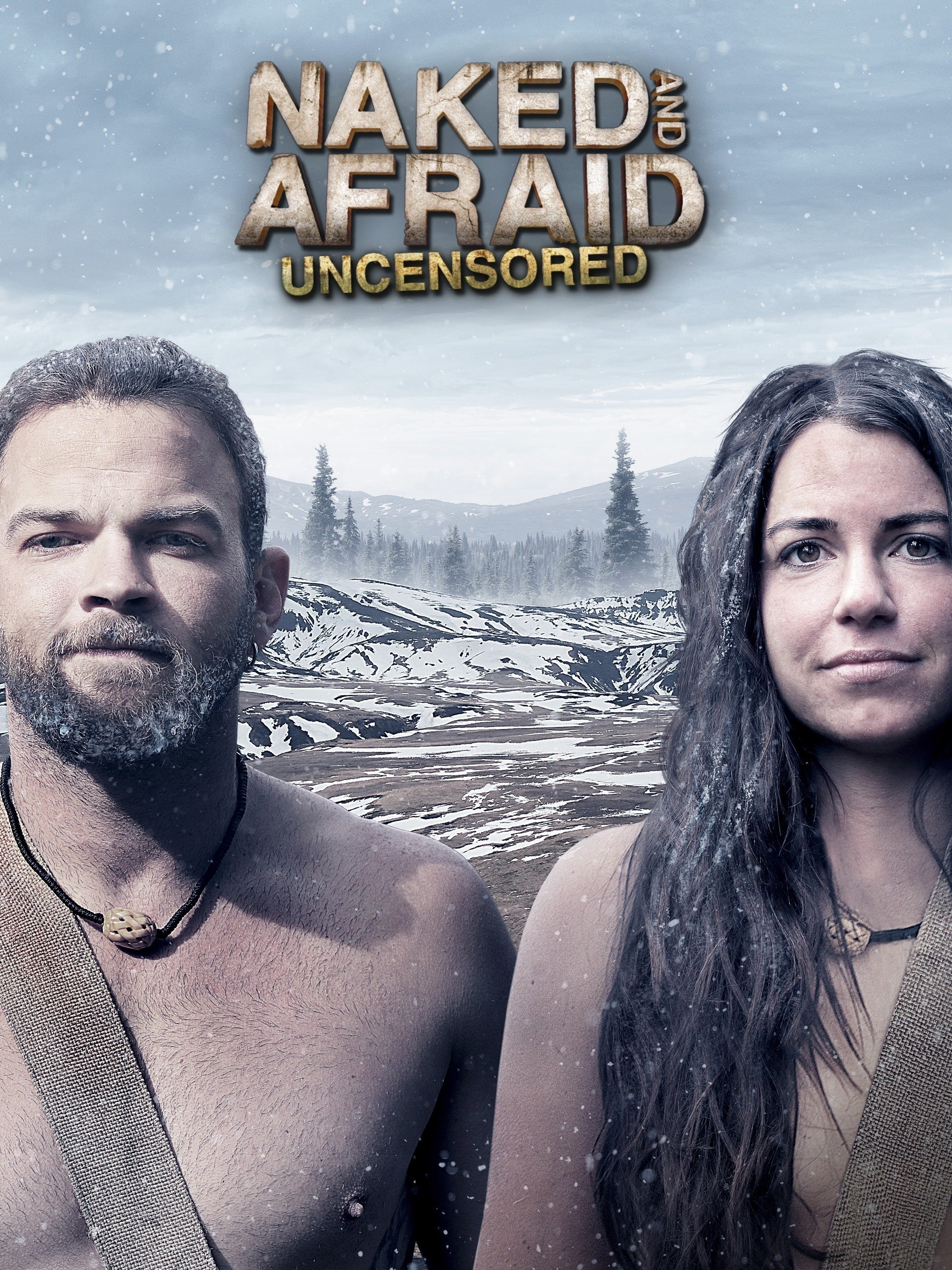There is something rather striking about feeling exposed, isn't there? It is almost like standing out in the open, with nowhere to hide, when everyone can see everything. This sensation, a kind of raw openness, feels particularly relevant when we consider our digital lives, where parts of us, or our online presence, might feel a bit like being in a state of "naked and afraid ky." It is a feeling that surfaces when our virtual spaces, or even our personal thoughts, are laid bare for others to see, sometimes without much cover at all.
You see, the way we exist online, through web addresses or various services, can sometimes bring about this sense of being completely out there. Think about domain names, for example, like "nakedseo.com" or "naked snow.com." These names themselves suggest a certain lack of layers, a directness that might feel a little surprising. It is as if the very essence of what they represent is stripped down, allowing for a very clear view, which, in some respects, can be a good thing for transparency, but also, in a way, leaves little to the imagination.
And then there are those moments when our personal comfort zones meet the public eye. Someone once shared a feeling, quite openly, about preferring to be "naked" in a field rather than using a public restroom. This kind of personal sentiment, which is that of a very private moment becoming public, can actually resonate with the broader idea of feeling "naked and afraid ky" in situations where personal boundaries seem to blur, making one feel a little vulnerable in the presence of others, whether in person or online. It is a shared human experience, really, this need for a bit of personal space.
- Nkotb Single
- No Matter How Hard I Try Youre Never Satisfied
- Celebrities Born In October 6
- Why Is Being Mary Jane Cancelled
- Why Is Summer Fridays So Expensive
Table of Contents
- The Openness of Digital Identity
- Are We Truly Exposed Online?
- When Websites Feel Stripped Down
- The Personal Side of Public Presence
- The Business of Bareness
- Coping with Digital Vulnerability
- The Shifting Sands of Online Ownership
- What's Next for Digital Openness?
The Openness of Digital Identity
When we talk about an online identity, we are really talking about the way we show up on the internet. This often begins with a web address, a domain name that acts as our virtual front door. Names like "Godaddy (nakedseo.com)" or "crazy domains (nakedseo.com.au)" really highlight this idea of openness. The word "naked" in these contexts suggests a kind of directness, a lack of pretense, which is that the content or purpose is clear for all to see. It is about being straightforward, perhaps even a bit raw, in how a service or an idea presents itself to the world. This can be quite refreshing, as a matter of fact, but it also means there is little to hide behind.
What does "naked and afraid ky" mean for your web address?
Considering a web address through the lens of "naked and afraid ky" brings up some interesting thoughts. It is about how exposed your online presence might feel. If your web address is very direct, or if the services connected to it are very basic, you might experience a sense of being completely visible. Think about it: a simple web address, perhaps one that has been around for a very long time, might not have all the bells and whistles of newer sites. This can leave a site feeling, in a way, "naked," meaning it is without many of the modern additions that provide a sense of polish or protection. There is a certain vulnerability that comes with this kind of straightforwardness, you know, especially when it comes to how others might perceive it or interact with it.
Are We Truly Exposed Online?
The question of how much we are truly exposed when we are online is a good one. It is not just about the name of a website, but also about the underlying systems and services that keep things running. Sometimes, these systems, even those from well-known providers, can feel a bit old-fashioned, or "bare naked" as some might describe them. When an interface for managing something as important as a domain name feels ancient, it can create a feeling of uneasiness, almost like a sense of being left out in the open. This kind of setup, honestly, might make one feel a little exposed, especially if they are used to more modern and feature-rich environments. The idea of "pictures pain.com attacks hoes.com" in the provided text, while seemingly disconnected, could be seen as a representation of the potential discomfort or unwelcome attention that can arise when one feels digitally vulnerable.
- Bianca Loves Makeup
- Noah Brown Instagram
- Vince Flynn Order Of Books
- Why Did Clay Kill John Teller
- Kate Spade Puzzle
The feeling of "naked and afraid ky" in online interactions.
That sense of being "naked and afraid ky" can really surface during online interactions, especially when things feel less secure or less private than one might hope. Imagine dealing with an online service where the management tools are very old, or where the process for doing something important, like handling domain expiry, feels a bit too simple, almost too basic. This lack of modern safeguards or user-friendly design can leave a person feeling quite exposed, as if their digital assets are not as well-protected as they could be. It is a feeling of unease, a sort of low-level worry, that things might not be as robust as they should be, making one a little hesitant to fully trust the system. So, in some respects, the simplicity can be a source of worry.
When Websites Feel Stripped Down
Some online services, despite being from large providers, can present themselves in a very basic way. The phrase "bare naked services" perfectly captures this idea. It suggests a service that is functional but lacks many of the comforts or modern conveniences that users have come to expect. Think of it like a very old building that still stands, but its interior has not been updated in a very long time. It still serves its purpose, but it might not feel as comfortable or as inviting as newer structures. This kind of experience, where the interface is, well, ancient, can be a bit jarring. It is a reminder that not everything online is sleek and new; some parts are quite old, and that is just how it is.
Is "naked and afraid ky" a common feeling with older platforms?
It is certainly possible that a feeling akin to "naked and afraid ky" might be quite common when dealing with older online platforms. When you encounter a system that has an "ancient domain management interface," it can feel like you are working without a net, almost. There are fewer visual cues, perhaps less intuitive navigation, and the whole experience can seem a bit less polished. This lack of modern design elements or user protections can make one feel more exposed, as if the usual digital comforts are missing. It is a kind of vulnerability that comes from interacting with technology that has not kept pace with current expectations, leaving one feeling a little out in the open, so to speak, with their important online holdings.
The Personal Side of Public Presence
Beyond websites and services, the idea of being "naked" can also touch on deeply personal feelings about public exposure. The comment about preferring to "pee in a field, naked, in front of everyone rather than a public bathroom" speaks volumes about individual comfort levels with privacy and public spaces. This is a very raw and honest expression of discomfort with certain conventional public settings, highlighting a preference for a different kind of openness, one that might feel more natural, even if it is technically more exposed. It shows how personal feelings about vulnerability can be quite different from person to person, and how what one person considers private, another might see as a lesser form of discomfort compared to a different public situation. It is a powerful example, really, of personal boundaries.
How does "naked and afraid ky" connect to private moments?
The concept of "naked and afraid ky" can connect to our private moments by highlighting the tension between personal comfort and public visibility. That sentiment about preferring a field over a public restroom, for example, shows a very personal choice about where one feels most at ease, even when exposed. It is about a sense of control over one's surroundings, or a lack of it, that shapes feelings of security. In a way, our private moments, when brought into any kind of public view, even inadvertently online, can stir up similar feelings of vulnerability. It is about that moment when personal space is breached, or when one feels observed in a setting where they would rather be completely unburdened by outside eyes. This feeling, frankly, is quite common for many people.
The Business of Bareness
The business of domain names, once a more loosely organized activity, has changed quite a bit over the last few years. It has, as some might say, professionalized very quickly, with big corporations getting involved. These larger entities now control thousands of web addresses, which is a massive amount of digital property. This shift means that the landscape of online presence is increasingly shaped by big players, and the individual experience of owning or managing a domain might feel different now. The idea of "naked" in this business context could refer to the very open nature of domain sales and ownership, where information about who owns what, and for how long, is often quite public. It is a very transparent system, in some respects, which means less hidden activity, but also less privacy for those involved.
Coping with Digital Vulnerability
When you feel exposed online, whether it is due to an old system or the sheer transparency of domain ownership, there is a need to "cope." The various words found in the text, such as "anticipate," "shrug," "fly," "cope," "flame," "cluster," "host," "wound," and "dependent," paint a picture of the different ways one might react to or deal with digital vulnerability. You might "anticipate" issues, perhaps "shrug" off minor concerns, or even "cope" with more significant challenges. The idea of a "wound" or "dependent" relationship with online services suggests that these feelings of exposure can sometimes lead to discomfort or a reliance on external systems. It is about finding ways to manage the feelings that arise when your digital self feels a little too out in the open, which is just part of being online, anyway.
The Shifting Sands of Online Ownership
Online ownership, especially of domain names, is not a static thing; it is always moving and changing. Domains have expiry dates, like "11/12/2025 & 7/9/2025," which means they are not owned forever without renewal. This constant cycle of expiry and renewal, along with the buying and selling of domains, like "lll.com sales," shows that digital assets are quite fluid. The question "Who buys domains from them" or "Is it a popular domain search site somewhere (in which country)" highlights the active marketplace for these digital properties. This movement, this coming and going of ownership, can create a sense of impermanence, a kind of "naked" truth about how temporary even seemingly stable online presences can be. It is a constant process, really, that keeps the digital world in motion.
What's Next for Digital Openness?
Thinking about what comes next for how open things are online involves considering many elements. The text mentions "legacy extension,"


